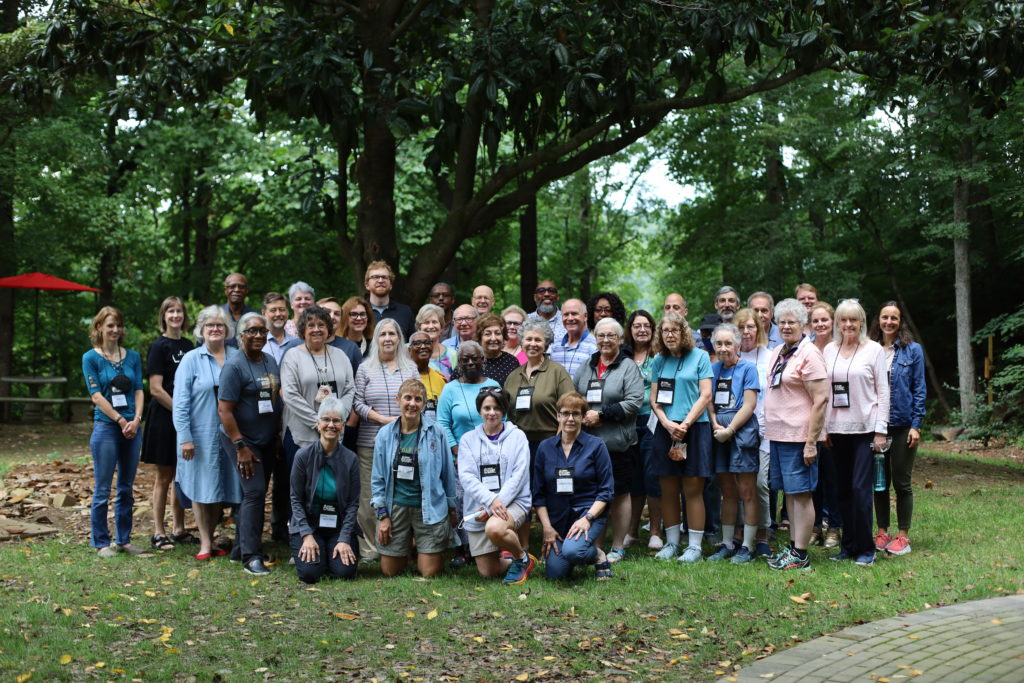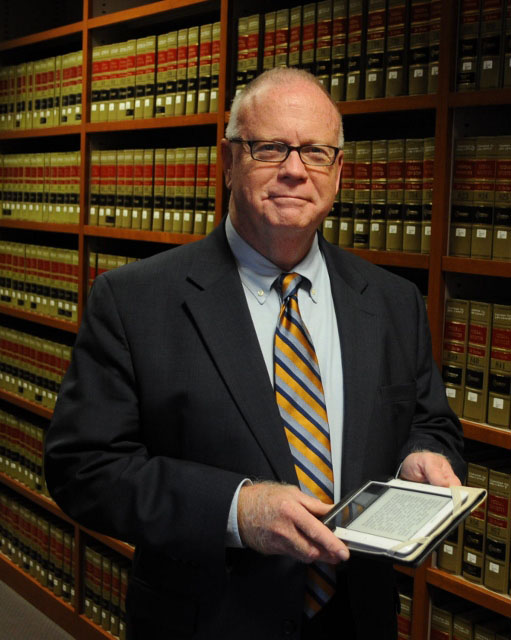
SANDY SPRINGS, GA – Diocese of Atlanta lay and clergy enrolled in a new two-year intensive program are learning how to strengthen and grow healthy parishes.
Thirty-four parishioners and priests from 11 congregations attended the second annual Diocese of Atlanta College for Congregational Development (CCD). Fifteen completed their first year of the program and will return next summer. The remainder graduated.
Missioner for Congregational Vitality & Ministry Development Sally Ulrey, who led this year’s CCD session, said the college will continue to have roughly the same number of first- and second-year students, but that incoming first-year students will expand the reach and impact of the college.
“So, growth won’t be in terms of more students in each year’s class, because we only have a limited number of spots, but we will grow in terms of parishes reached, and in terms of more and more people added to each parish team who have gone through the College,” Ulrey said.
“The more people at a parish who have gone through the College, the more it begins to permeate their parish cultures and form and develop those parishes, and the participants as leaders.”
The week-long residential session currently held at the Ignatius House Jesuit Retreat Center is a program of the Office of Congregational Vitality. It’s available to leaders of congregations in the Diocese of Atlanta who want them to become vibrant and thriving communities of faith.
To qualify for the two-year program a team of lay and clergy leaders must commit to developing leadership skills for the benefit of their parish. CCD is based upon the academic disciplines of congregational and organizational development. Courses are designed to help students create healthy parishes that are more faithful, and effective. Originating in the Episcopal Diocese of Olympia, CCD is deeply rooted in the identity, doctrine, discipline, and worship of The Episcopal Church.
CCD is for parishes facing significant challenges, who have also decided they are ready to do the work to change. Parishes either holding steady or thriving, but looking for further growth, should also consider this program. Parishes going through sudden trauma or crisis are not candidates for the program.
“The tools at the College are really ways to think through adaptive challenges,” Ulrey said. “They’re not solutions or answers, but they give leaders tools to frame good questions and lenses to use to think through challenges.
“What we learned last year is that our churches in the Diocese were hungry for these tools after facing all the challenges of the pandemic,” she said.
“The College’s inaugural year was exceptionally well received and had the highest feedback rating of any diocese that had launched a college. I think that is because the launch of the College in Atlanta was so well timed – launched in 2021, just as everyone was coming out of the pandemic when there was a huge need for these tools.”
Ulrey said parishes have already begun making use of the concepts learned at CCD.
“All Saints in Warner Robins has used these tools to think through their practices around invitation and welcome at their church, and they’ve implemented some things that have helped better prepare them for hospitality,” she said.
The Rev. Ben Day, rector of Christ Church Kennesaw who completed CCD at this year’s session said it provided valuable information about how “systems” work.
“What I’ve learned this week is that all systems – church systems, corporate systems, political systems, – are interconnected and you can’t change one aspect of the system without having ripple effects on other areas of the system,” Day said. “If you change the leadership, you have ripple effects on the processes and procedures. If you change the content, you have ripple effects on the ways which leaders are willing to show and exhibit leadership qualities.”
Day said learning about systems also fed his spiritual understanding of the challenge facing the church.
“So, my understanding of the church is that it brings order out of chaos and that’s the story of the Biblical narrative. So, by studying systems and how parishes work as systems we begin to see differently how The Holy Spirit is involved in actively bringing order to church in this anxious time where decline is sometimes talked about in hushed tones, and where we can begin to transform the world through understanding how The Holy Spirit is still at work in the church and its systems.
As a first-year student, parishioner Jacki Payne of Church of the Incarnation in Atlanta said she didn’t know what to expect, but that the week of learning, praying, and relaxing with others from different parts of the diocese was an amazing experience intellectually and spiritually.
“The things I have learned about helping to make a change in our congregation, done in a positive way, it’s been really good,” Payne said. “I’ve had a lot of moments of grace. There were times when I felt resistance in myself and I had to step back and think about it then felt God’s Spirit just fill me, so there have been a lot of those moments this week.”
Use this link to learn about sending a team of lay and clergy leaders from your church to the College for Congregational Development.

